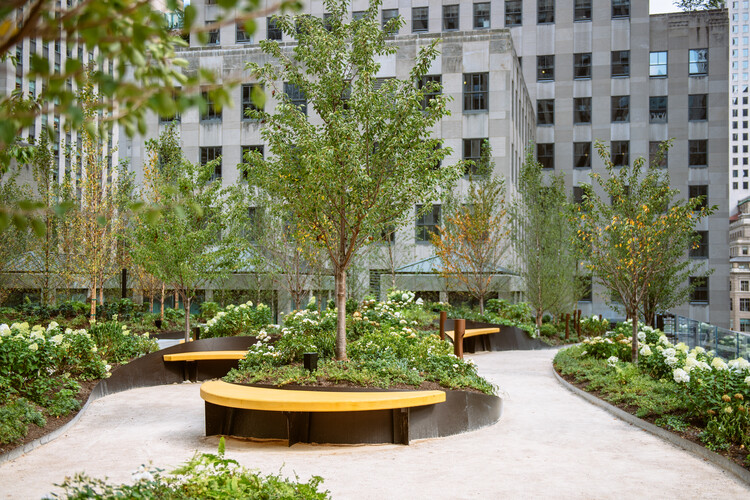
-
Architects: HMWhite
- Area: 2248 m²
- Year: 2021
-
Manufacturers: mmcite, Bear Creek Lumber, Birch Trees, Cherry Trees, Connecticut Stone, Custom Fabrication Incorporated, Deco Planters, Garden Roof Assembly & Drainage components, Groundcovers and Perennials, Hornbeam Trees, Kafka Granite, Scofield Lithocast, Shrubs, Stancils, Inc, Stone Yard, Vermont Stone Art, Wausau Window and Wall Systems

Text description provided by the architects. The project directive was to create a distinct, and memorable urban landscape design that would be recognized world-wide and be on par with the celebrity of Rockefeller Center. Upon arriving, the entry space is conceived as a dense woodland grove of trees that shifts the perspective of being in a building to being immersed in a forest and a The trees’ contiguous lacy canopy reads as a forest. Dappled sunlight dances on the garden’s entry pavement while the four-sided Rockefeller Center building context is disguised and visually erased.


















